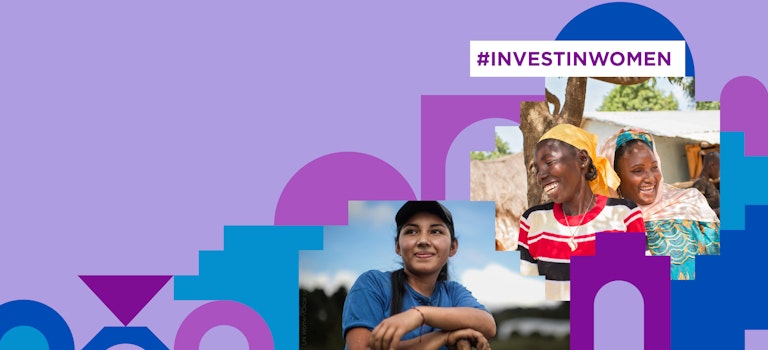Image credit: UN Women

By: Ambassador Tormod C. Endresen
Permanent Representative of Norway to the UN and other IOs in Geneva
This year, the Norwegian foreign service reached a near 50/50 ratio of men and women. I am proud of this development, as it is not a coincidence. Gender equality is a constant work in progress. I have also experienced how gender balance has made us better. Like in most organisations, diversity makes for better decisions.
Measures taken in Norway for the last several decades, like parental leave and right to childcare have given women greater maneuverability to work on an equal footing. We celebrated 40 years of our legislation promoting gender equality already in 2018. It is estimated that Norway would have lost 3300 billion NOK (317 billion USD) in income in the 40 years preceding the law if it had not been applied.
In a historic move in 2023, the Norwegian government proposed that medium-sized and large companies should have at least a 40 per cent gender balance on the board. These updated rules will be gradually introduced already from 2024 and will eventually cover around 20,000 companies. Norway is the first country in the world to take this step.
Our new action plan for women’s rights and gender equality in Norway’s foreign and development policy (2023-2030) outlines concrete measures Norway will take both internally and externally. Internally, it is our aim that all staff in the Ministry of Foreign Affairs should possess a solid understanding of efforts to combat sexual harassment, aligning with our international obligations to combat sexual abuse, exploitation, and harassment. As part of strengthening our work, we will also continue to build competence and offer training on gender equality and women’s rights, including sexual and reproductive health and rights, as well as queer rights across the board.
In addition, Norway has strengthened our existing action plans on Women, Peace and Security (2023-2030) and efforts for women in humanitarian settings covered in Norway’s Humanitarian Strategy. To promote sustainable peace and security for all, at national, regional and global level, we integrate a gender perspective and women’s participation in all work related to peace and security. Inclusive processes result in better defense and more sustainable peace agreements.
Lastly, let me highlight technology and equality. All girls and women need access to digital technology, the skills to use it, and to participate in its development. Norway has joined the UNFPA Equity 2030 Alliance to this end. The alliance, with its 50+ members, including a significant number of technology companies, is at the forefront of redesigning our world with solutions that are not only made by women, but are crafted with and for them.
Norway joined the alliance because the integration of gender equity in technology and science is crucial for addressing the myriad challenges faced by women worldwide. We need safer, more inclusive, digital societies.
In its contributions to the Global Digital Compact, and to the Pact for the Future, Norway has emphasized the importance of committing to empower women and end the digital gender divide, by mainstreaming gender in digital policies and in technology design, and by expanding women’s participation in digital policymaking and the tech sector.
This is not only about breaking the glass ceiling. Or breaking patriarchal rules. We are aiming to break generations of habit. Not least, if we are to accelerate progress for all, the answer is simple: Invest in women!
Please join us on 8 March for a cross sectoral event looking at best practices in ensuring gender inclusive AI: Developing discrimination machines? Best practices in ensuring gender inclusive AI - Norway in Geneva
